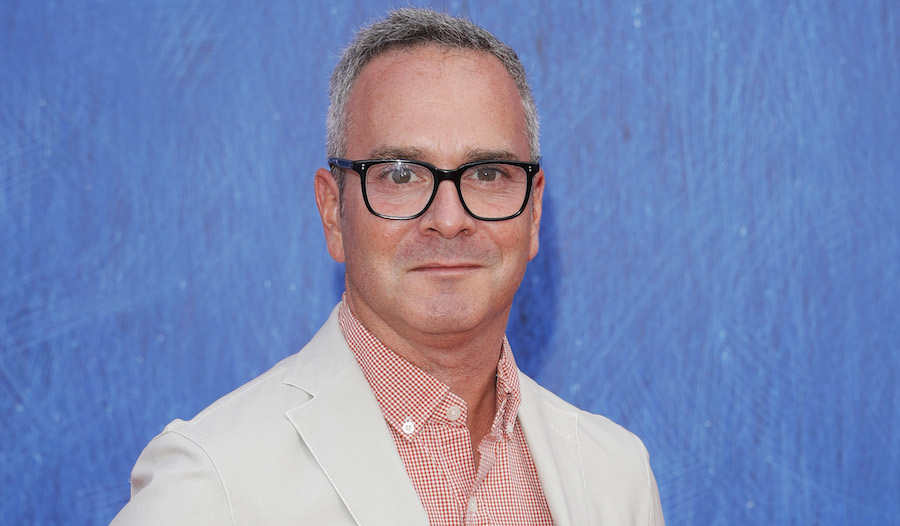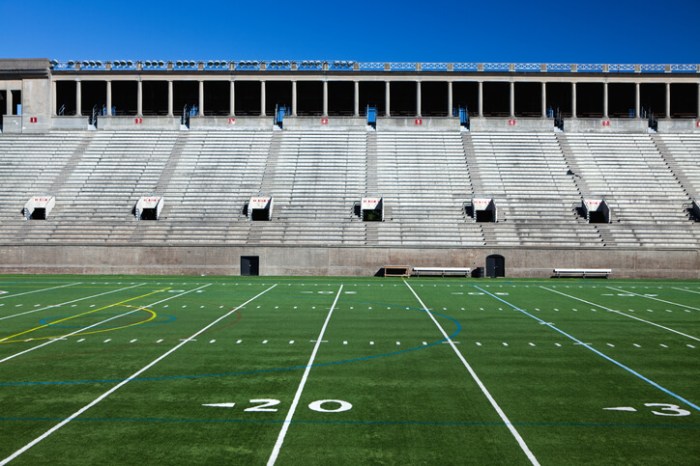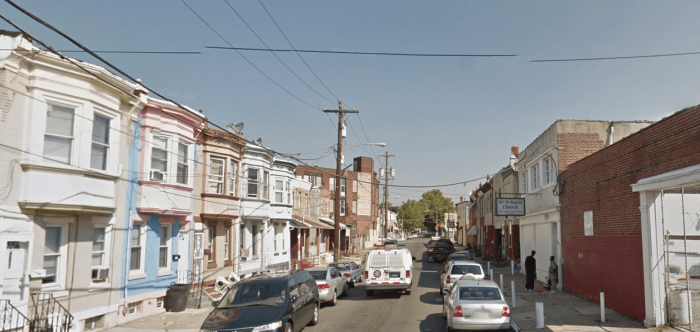Tim Sutton recognizes that now’s not the best time to open a movie about people being killed in a movie theater. At the same time, it could be the perfect time. With his third feature, “Dark Night,” which bowed at the 2016 Sundance Film Festival, the filmmaker has made an art film-thriller inspired by the 2012 Aurora, Colorado shooting during a showing of “The Dark Knight Rises.” It’s not a recreation of it, though. Instead it’s set during the day of a similar tragedy, following around six strangers (a teen, a vet, a selfie-obsessed woman, etc.) who may be a victim, a survivor or the killer himself. It doesn’t offer explanations for the act, but it does portray an alternate view of the American suburbs, where bored people deal with their problems in isolation, looking for some kind of transcendence. For one of them, the breakthrough comes in the form of unimaginable violence. Sutton talks to us about why we shouldn’t subsist strictly on escapist fare, avoiding social issue statements and playing around with the film’s title.
The first time I saw “Dark Night” was last summer, when it played at BAMcinemafest. But I have to admit, when I tried to rewatch it for its theatrical release, it was at the end one of those days when Trump was ramming all these terrifying executive orders through. When I tried to put it on that night, I just couldn’t watch it. I had to do it another day. I know. Trust me, you’re not alone. Here’s my argument, though: You can go watch “La La Land,” and you can forget everything about the world and about confusion and about frustration and about not knowing how exactly the world is going. And I think that’s bulls—. [Damien Chazelle] is a totally skilled filmmaker, he’s probably the best of his generation. He’s going to be a master. But he made a film that is basically putting gauze over people’s eyes so they don’t have to think about it. It’s sheer escapist entertainment. I think the world of cinema needs to have something else, like “Moonlight” or “Dark Night” or many other films, to show cinema is still engaged with the world. RELATED: Review: “Dark Night” is a haunting film about violence and boredom in America I would argue dark films like this are therapeutic, too, in their way. They allow us to reach epiphanies, rather than only putting out head in the sand — which, I’d also argue, is important to do now and then as well. You do need to take breaks from it. You do need escapism. But you need to engage, too. The artist’s job right now is to ask that people engage — not demand, but ask. “Dark Night” is definitely one that does that. But on one hand, it’s not about a shooting. It’s a look at a part of America, which looks like a lot of other places around America.
The film is set in Florida, but it could have been Tulsa, it could have been Minneapolis, it could have been Indianapolis. It could have been any small town that has a strip mall in it. The idea is these people in this landscape are suffering from a lack of connection. It could be emotional, it could be economic. It could be something that has to do with their immigration status, or they’re just back from the war and trying to get back into the day-to-day of American life. There’s always a challenge, and that challenge doesn’t always come in the form of confrontation. It comes from a lack of communication. We’re all checking our likes on Facebook, but not necessarily picking up the phone to talk to people. We’re all wondering why these violent events happen, then we go to the movies and see giant explosions and masked vigilantes shooting up cities, and then go home and play our first-person shooter video games, where the object is to kill. There’s a deep fissure in the communal life in parts of America. I suffer from it, too. The character who takes selfies all the time is based on me and my experiences. I’m on Instagram all the time. Does it really happen if I document it the way I want it to be seen on Instagram? There’s this whole ennui that is allowing people to either drift further away from each other or to sink into a fantasy. There’s this need to break out or break free. I think the people who are committing atrocities or horrible acts of violence in real life are trying to break through this boredom of theirs or this isolation and do something that can make a mark. Still, the movie isn’t really trying to diagnose all the shooter’s motivations.
People have referred to this as a gun control movie, which it is not. My politics are absolutely left-wing. If it were up to me there would be no guns. But as an artist, it was really important to just observe what people are doing. I wanted people from all over this country to see this movie. Someone from a red state who’s a gun owner, who really believes in self-protection and all that, can see the guy cleaning his guns and shooting in the gun range and say, “Yeah, that’s legitimate, that’s what I do.” At the same time they have to watch the guy who absolutely should not have access to guns walk the streets and almost kill his neighbor, just because he’s disconnected and has lost his mind. The idea is that I’m not judging. I’m just showing as many layers of it as I can, while still trying to make a palatable movie. This is very different from your other two films. In “Memphis,” you were simply following this subject, musician Willis Earl Beal, around, letting him play a part in shaping the movie. I got the impression that perhaps something similar happened in “Dark Night” — perhaps that the idea of a shooting might not have been the original genesis of the idea. It could have been the idea of a film in the suburbs first. Is that even true? The idea came from the act, but it was very important from the beginning that I would never show it. I was never going to show the catharsis. People are actually disappointed by that in certain ways. They almost want to see the shooting at the end. I never wanted to show violence, because if you show violence you can glorify it without even trying to. I didn’t want to risk that, because I didn’t want that to be the focus of the movie. Also, if you don’t show the violence, the violence hasn’t happened yet. You know it’s going to happen, so you walk out of the theater with the violence still possible. It’s a much harder, less cathartic experience. It sticks with you more than if it had happened. As far as the storytelling goes, it was very different from Memphis, which was a movie about the creative process. I always said that if Willis woke up one day and decided he was driving to Louisiana, we had a decision to make: We could drive with him or make a movie about the kids or about his one-legged driver. This movie was scripted, though we didn’t stick to the lines, because with non-actors I don’t enforce specific dialogue on them. But the script was pretty much executed from start to finish. Can you describe some of the ways you worked with the non-actors?
I try to approach each actor in a way that’s going to allow them to bring their best performance. It was important to go in a more verité/Maysles brothers style. With the teenager I didn’t ask him to hit marks or deliver lines. I told him he didn’t have to always talk. It was just about what he was feeling, what he was going through. And then for [Robert] Jumper, the actual shooter, his only experience with the camera before was he had done some modeling. He clearly wanted to be a movie star. So I approached it like that. He would be brought to set by two assistants. His hair would be done. He would be touched up. He would be shown his marks. Then he would go through it as though he was Joaquin Phoenix. He thrived on that. It helped him feel special — and at the same time completely at risk, because he knew he was faking it. To me, that’s his character. You could say that about a lot of shooters in real life: They’re looking to be stars. Your other movies have been smaller affairs, but even calling it “Dark Night” brings you a lot more attention than you’ve previously had.
I knew right from the start it should be called “Dark Night.” I almost called it “Dark Night Rises.” One of the original images I had in my head is the guy in the Batman mask in the mirror. It’s not meant to be a cheap hook; it’s meant to be a very disturbing and deep and obvious connection to the real world. I could have called it “Elephant,” because Gus Van Sant’s “Elephant” is named “Elephant” because of Alan Clarke’s “Elephant,” which is about the Troubles in Northern Ireland. The idea is that there’s a clear connection to other movies that have been direct cinematic responses to violence. If I had named it “Jumper,” it wouldn’t have mattered. But if I named it “Dark Night,” it would immediately create an image in your head, and you have an understanding of that image. We all know what that term means. And it’s up to the film to earn that title, whether as a movie on its own or as something meaningful about that subject matter. Did you find yourself thinking more about audiences this time, even though it’s still an “art film”? I wonder if independent filmmakers do think in part about getting attention in an overly clogged landscape. It’s hard to stand out, but it’s not about that. I think it’s very important to make movies that are relevant. I think “Memphis” was relevant, but it was relevant in its own way. People who like “Memphis” like it, and people who don’t never saw it. But “Dark Night” was a movie where it was very important to me get as many eyeballs on it as possible. That’s why it’s a tighter story. Even though it’s an ethereal film, it’s strung together like a taut thriller, in many ways. It had to be told this way to get people to watch it. Gus Van Sant can make “Elephant” any way he wants, but I think this movie had to play off tropes like thriller or horror as much as it did in an observational semi-documentary way. Still, it denies a lot of obvious expectations. There are plenty of worthy movies about gun violence.
A lot of people can make a social issue documentary, and make really good social issue documentaries. At Sundance last year, there were two other films about gun violence. Katie Couric’s [“Under the Gun”] was one; it sold for a million dollars and was released very quickly. “Newtown” was the other. That was a very difficult story to tell and it was very meaningful. But it was after-the-fact. It’s all post-, it’s all grief. It was important for “Dark Night” to be a colder look at before — before the grief cycle, before the media news cycle chews it up and spits it out. It’s about people with fragile lives near the end. I had no interest in making a political film. The act of this film itself is the politics. Follow Matt Prigge on Twitter @mattprigge
Tim Sutton thinks you need to see dark movies like ‘Dark Night’ too

Getty Images


















